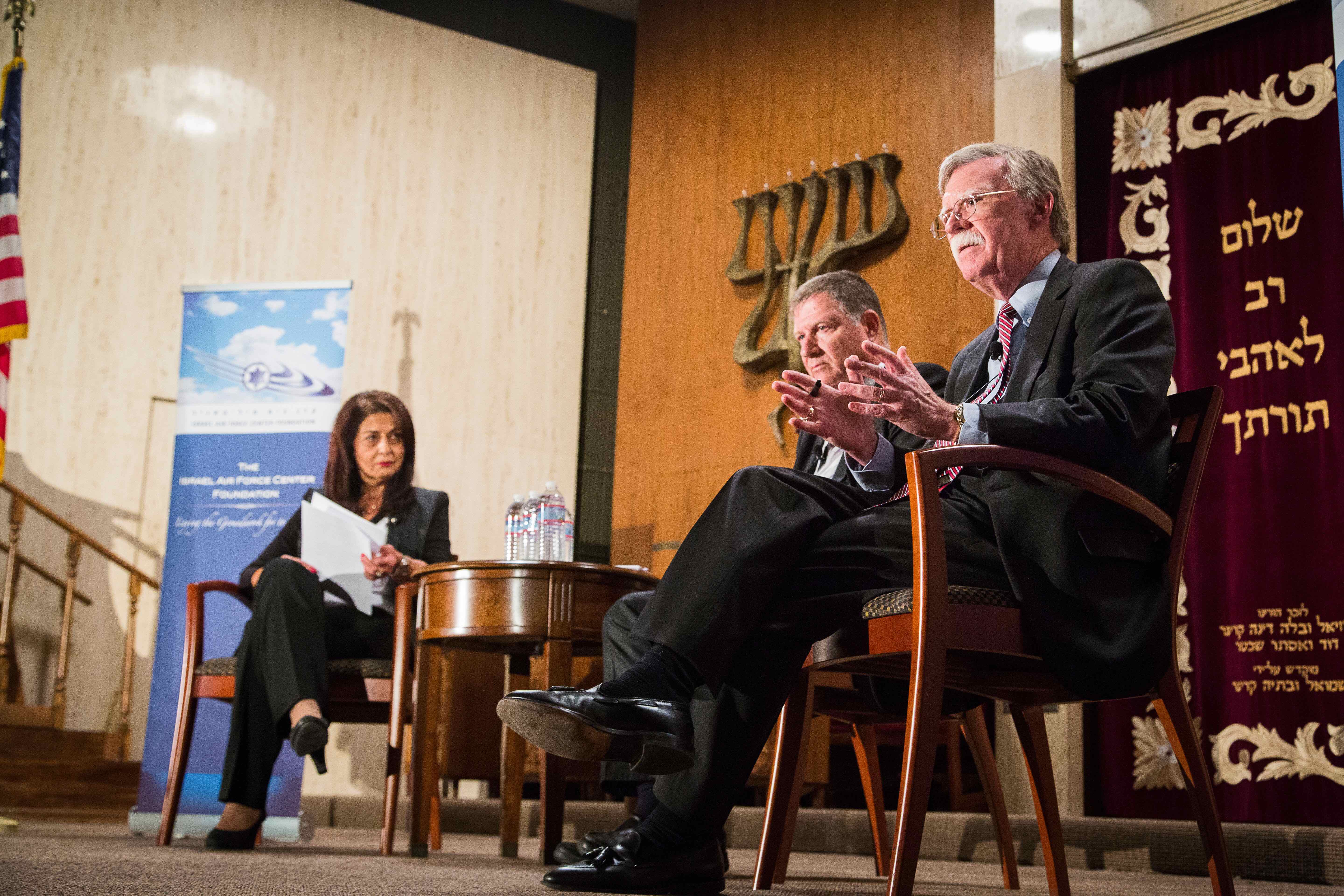On Thursday night, the Israel Air Force Center Foundation, a nonprofit organization that aims to “develop the IAF’s human capital,” hosted former UN Ambassador John Bolton and Brigadier General Relik Shafir in a forum on the Iran Nuclear Deal.
Bolton served in multiple Republican administrations, including those of Ronald Reagan, George H. W. Bush, and George W. Bush. In the younger Bush’s administration, Bolton, among many other accomplishments, vigorously defended Israel in his role as permanent ambassador to the United Nations. Shafir served in the military for 31 years and was one of the pilots who dropped a bomb on Iraq’s Osirak nuclear reactor in 1981. He is also the official spokesman for the Israeli Air Force in times of emergency.
The conversation between the two men ranged from a nuclear Iran to Israeli-American relations. On the subject of Iran, Bolton made it clear that the question at this point is not if Iran gets nuclear weapons, but when it gets them. He stated, “[The concern is] not necessarily from the threat that Iran would use nuclear weapons, but from what the capability of having nuclear weapons gives them and since they’re also the world’s largest financier of international terrorism, nuclear weapons would give them impunity.”
Indeed, the only way that the Iranian program could be destroyed, according to Shafir, is if the United States made use of its air force, which Bolton assured the audience the US would not, although the ambassador claimed that Israel could destroy the Iranian nuclear program if it destroyed key fuel sites. Shafir explained that in the absence of military action, Israel has to come to an understanding with both the US and Russia on where the red line should be drawn and strengthen missile interception systems like Arrow II and III.
Turning to Israeli politics and US-Israel relations, Bolton received some of the loudest applause of the night when he said, “Well, I think the president has been the most hostile American president since 1948, so doing better isn’t hard. Treat an ally like an ally.”
Shafir also expressed his concerns for the future, as Jewish university students in the US lose their connection to Israel and Judaism. He claimed, “I’m worried about the young Jewish generation. I’m worried about the commitment… as far as the generation in universities…that causes less commitment to Israel and less understanding.” His solution involved accepting all denominations of Judaism as part and parcel of the community and approaching situations using our Jewish values.
When asked about the model of a two-state solution, Bolton asserted that it was flawed and unrealistic. Instead, he proposed a novel three state solution: Give Gaza to Egypt and most of the West Bank to Jordan. “I propose it,” Bolton said, “not because I think it’s a wonderful idea, but because it’s clear that the two-state solution simply will not work…No one should be forced to live with the creation of a terrorist state on their border.”
Interestingly, Shafir believes that a stable Assad regime would benefit Israel, as it would make someone accountable, whereas in the current situation, no one can be. To him, it is a choice not between good and bad, but a choice “between bad and worse.”
But regardless of personal opinion regarding the Iran nuclear deal, the audience left the event with the understanding that the outcome of the deal is more complicated than it may seem, as is the situation created by a nuclear Iran.

